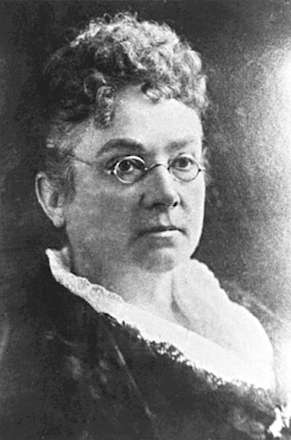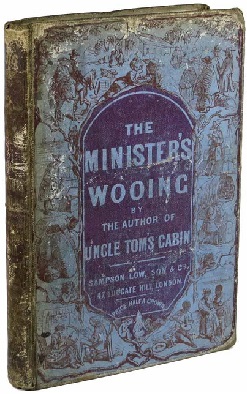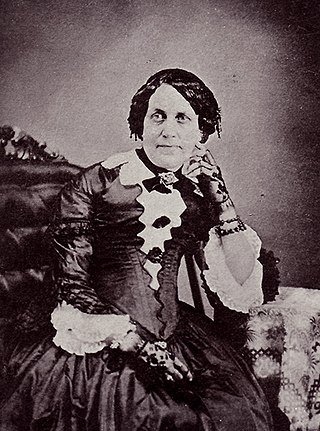Related Research Articles

Uncle Tom's Cabin; or, Life Among the Lowly is an anti-slavery novel by American author Harriet Beecher Stowe. Published in two volumes in 1852, the novel had a profound effect on attitudes toward African Americans and slavery in the U.S., and is said to have "helped lay the groundwork for the [American] Civil War".

Harriet Elisabeth Beecher Stowe was an American author and abolitionist. She came from the religious Beecher family and became best known for her novel Uncle Tom's Cabin (1852), which depicts the harsh conditions experienced by enslaved African Americans. The book reached an audience of millions as a novel and play, and became influential in the United States and in Great Britain, energizing anti-slavery forces in the American North, while provoking widespread anger in the South. Stowe wrote 30 books, including novels, three travel memoirs, and collections of articles and letters. She was influential both for her writings as well as for her public stances and debates on social issues of the day.

Dred: A Tale of the Great Dismal Swamp is the second popular novel from American author Harriet Beecher Stowe. It was first published in two volumes by Phillips, Sampson and Company in 1856. Although it enjoyed better initial sales than her previous, and more famous, novel Uncle Tom's Cabin, it was ultimately less popular. Dred was of a more documentary nature whereas Uncle Tom's Cabin had much stronger characters.

Lyman Beecher was a Presbyterian minister, and the father of 13 children, many of whom became noted figures, including Harriet Beecher Stowe, Henry Ward Beecher, Charles Beecher, Edward Beecher, Isabella Beecher Hooker, Catharine Beecher, and Thomas K. Beecher.

Catharine Esther Beecher was an American educator known for her forthright opinions on female education as well as her vehement support of the many benefits of the incorporation of kindergarten into children's education. She published the advice manual The American Woman's Home with her sister Harriet Beecher Stowe in 1869. Some sources spell her first name as "Catherine".

Emily Howard Stowe was a Canadian physician who was the first female physician to practise in Canada, the second licensed female physician in Canada and an activist for women's rights and suffrage. Stowe helped found the women's suffrage movement in Canada and campaigned for the country's first medical college for women.

The Minister's Wooing is a historical novel by Harriet Beecher Stowe, first published in 1859. Set in 18th-century New England, the novel explores New England history, highlights the issue of slavery, and critiques the Calvinist theology in which Stowe was raised. Due to similarities in setting, comparisons are often drawn between this work and Nathaniel Hawthorne's The Scarlet Letter (1850). However, in contrast to Hawthorne's The Scarlett Letter, The Minister's Wooing is a "sentimental romance"; its central plot revolves around courtship and marriage. Moreover, Stowe's exploration of the regional history of New England deals primarily with the domestic sphere, the New England response to slavery, and the psychological impact of the Calvinist doctrines of predestination and disinterested benevolence.

A Key to Uncle Tom's Cabin is a book by American author Harriet Beecher Stowe. It was published to document the veracity of the depiction of slavery in Stowe's anti-slavery novel Uncle Tom's Cabin (1852). First published in 1853 by Jewett, Proctor & Worthington, the book also provides insights into Stowe's own views on slavery.

Isabella Beecher Hooker was a leader, lecturer and social activist in the American suffragist movement.

Charles Beecher was an American minister, composer of religious hymns and a prolific author.

The Harriet Beecher Stowe House is a historic home in Cincinnati, Ohio which was once the residence of influential antislavery author Harriet Beecher Stowe, author of the 1852 novel Uncle Tom's Cabin.

Caroline Lee Whiting Hentz was an American novelist and author, most noted for her defenses of slavery and opposition to the abolitionist movement. Her widely read The Planter's Northern Bride (1854) was one of the genre known as anti-Tom novels, by which writers responded to Harriet Beecher Stowe's bestselling anti-slavery novel, Uncle Tom's Cabin (1852).

The Harriet Beecher Stowe House is a historic house museum and National Historic Landmark at 73 Forest Street in Hartford, Connecticut that was once the home of Harriet Beecher Stowe, author of the 1852 novel Uncle Tom's Cabin. Stowe lived in this house for the last 23 years of her life. It was her family's second home in Hartford. The 5,000 sq ft cottage-style house is located adjacent to the Mark Twain House and is open to the public. It was listed on the National Register of Historic Places in 1970, and declared a National Historic Landmark in 2013.

Hartford Female Seminary in Hartford, Connecticut was established in 1823, by Catharine Beecher, making it one of the first major educational institutions for women in the United States. By 1826 it had enrolled nearly 100 students. It implemented then-radical programs such as physical education courses for women. Beecher sought the aid of Mary Lyon in the development of the seminary. The Hartford Female Seminary closed towards the later half of the 19th century.

Originating in New England, one particular Beecher family in the 19th century was a political family notable for issues of religion, civil rights, and social reform. Notable members of the family include clergy, educators, authors and artists. Many of the family were Yale-educated and advocated for abolitionism, temperance, and women's rights. Some of the family provided material or ideological support to the Union in the American Civil War. The family is of English descent.

The Harriet Beecher Stowe House is a historic home and National Historic Landmark at 63 Federal Street in Brunswick, Maine, notable as a short-term home of Harriet Beecher Stowe and Calvin Ellis Stowe and where Harriet wrote her 1852 novel Uncle Tom's Cabin. Earlier, it had been the home of Henry Wadsworth Longfellow as a student. It is today owned by Bowdoin College. A space within the house, called Harriet's Writing Room, is open to the public.

Calvin Ellis Stowe was an American Biblical scholar who helped spread public education in the United States. Over his career, he was a professor of languages and Biblical and sacred literature at Andover Theological Seminary, Dartmouth College, Lane Theological Seminary, and Bowdoin College. He was the husband and literary agent of Harriet Beecher Stowe, author of the best-seller Uncle Tom's Cabin.

Walnut Hills is a neighborhood in Cincinnati, Ohio, United States. One of the city's oldest hilltop neighborhoods, it is a large diverse area on the near east side of Cincinnati. Eden Park is the gateway to Walnut Hills when driving north from downtown, and the University of Cincinnati is less than 10 minutes away. The neighborhood is redeveloping, restoring many of its buildings and introducing new businesses to the area. The population was 6,344 in the 2020 Census.

Katherine Elizabeth Foote Coe was an American educator, journalist, and traveler from Connecticut.

Mary Espartero Webb was an American actress and orator known for her dramatic readings of poetry and literature. She toured the northern United States and performed in Europe as a protégée of Harriet Beecher Stowe.
References
- Jackson, Phyllis Wynn. Victorian Cinderella: The Story of Harriet Beecher Stowe. New York: H. Wolff Book Manufacturing Company, 1947. (See especially pp. 170–175.)